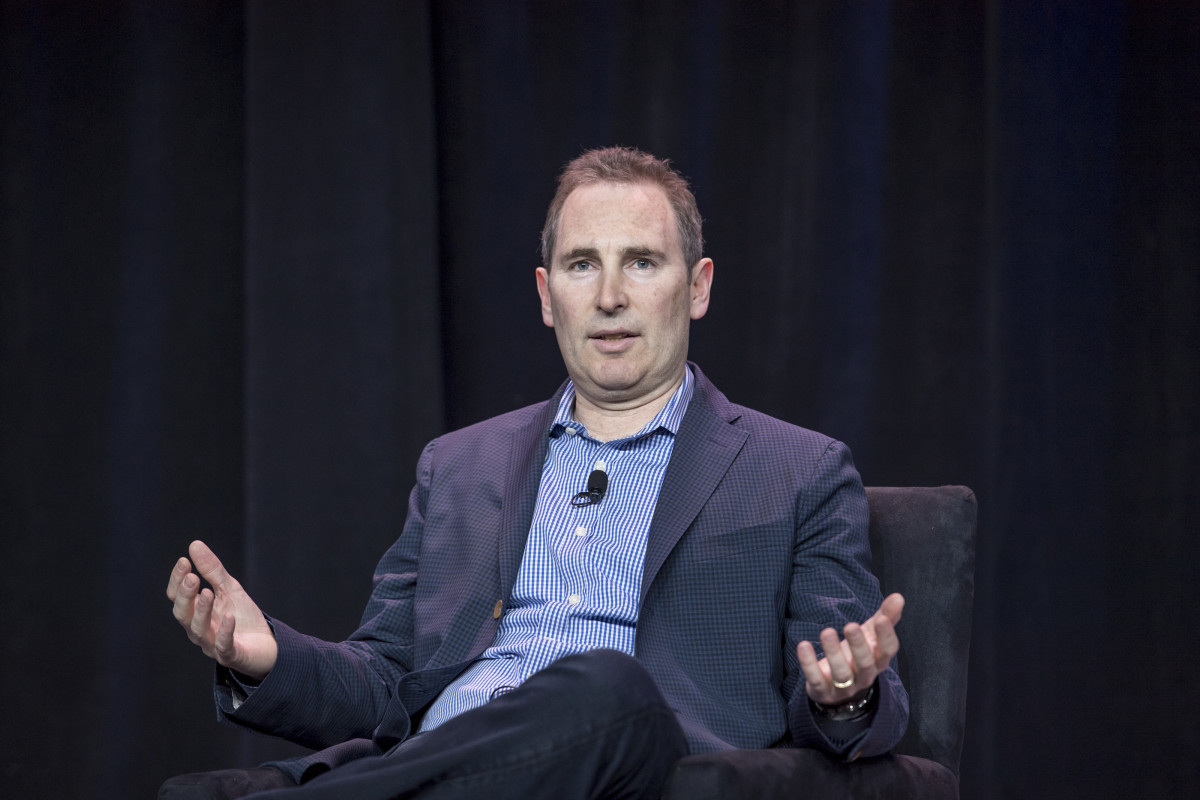
Brace yourself, people. Amazon's (AMZN) got nukes.
That might sound a bit scary, especially to some of you Baby Boomers out there who are having flashbacks of Slim Pickens rodeo-riding a nuclear bomb to Armageddon in "Dr. Strangelove."
Related: Analysts revamp stock price targets for Microsoft’s AI-power supplier
But the e-commerce company said it's all for a good cause.
The Seattle retail and tech giant said in an Oct. 16 blog post that it signed three new agreements to support the development of nuclear-energy projects — including enabling the construction of several new small modular reactors, or SMRs.
🔌Free Newsletter From TheStreet - TheStreet🔌
“Nuclear is a safe source of carbon-free energy that can help power our operations and meet the growing demands of our customers, while helping us progress toward our Climate Pledge commitment to be net-zero carbon across our operations by 2040,” Matt Garman, CEO of Amazon Web Services, said in a statement.
Amazon’s agreement with Energy Northwest, a consortium of state public utilities, will enable the development of four advanced SMRs and “help meet the forecasted energy needs of the Pacific Northwest beginning in the early 2030s,” the company said.

Amazon and Google go nuclear
The company is also working with Dominion Energy (D) to explore putting a small modular reactor near its existing North Anna nuclear power station in Virginia and investing in reactor developer X-energy, which develops next-generation SMR reactors and fuel.
The Energy Northwest project will use X-energy’s advanced nuclear reactor design.
Dominion shares and nuclear energy companies, such as Nano Nuclear Energy (NNE) and NuScale Power (SMR) , saw their stock skyrocket after the Amazon announcement.
Amazon isn't the only tech giant choosing the nuclear option, as growing demand from data centers and artificial intelligence sparks a search for carbon-free electricity sources.
Just one day earlier, search engine titan Google said it had signed the world’s first corporate agreement to purchase nuclear energy from multiple SMRs to be developed by Kairos Power.
Related: Goldman Sachs analyst revisits Amazon stock price target ahead of earnings
"Nuclear solutions offer a clean, round-the-clock power source that can help us reliably meet electricity demands with carbon-free energy every hour of every day," the company said in a blog post of its own.
"Advancing these power sources in close partnership with supportive local communities will rapidly drive the decarbonization of electricity grids around the world," the post said.
Alphabet's (GOOGL) Google said it expected to bring the first small modular reactor online by 2030, with more to come through 2035. The deal is projected to bring 500 megawatts of power to the grid.
The company consumed more than 24 terawatt hours of electricity last year.
The world is using a lot more electricity since the days of Thomas Edison. In fact, people used more electricity than ever last year, straining electric grids worldwide.
A study by the International Energy Agency found that electricity consumption from data centers, AI, and the cryptocurrency sector could reach more than 1,000 terawatt hours in 2026, more than doubling the figure from 2022 and roughly equivalent to the electricity consumption of Japan.
Microsoft signs nuclear-power deal
Estimates suggest one terawatt hour can power 70,000 homes for a year.
Nuclear reactors don’t emit the planet-warming greenhouse gases that come from power plants that burn fossil fuels, such as oil, coal, and gas.
More Tech Stocks:
- Analysts update Meta stock price target with Q3 earnings in focus
- Analyst updates Tesla stock price target ahead of key robotaxi event
- Analysts update outlook for Nvidia's Blackwell chips amid AI boom
Low-emission sources, including nuclear and renewables such as solar, wind and hydro, will reduce the role of fossil fuels in producing electricity globally, the association said. They are forecast to account for almost half the world’s electricity generation by 2026, up from 39% in 2023.
Small modular reactors can generate up to roughly one-third the amount of power of a traditional reactor, and developers say they will be built faster and at lower cost than large power reactors.
Last month, software giant Microsoft (MSFT) and Constellation Energy (CEG) said they had signed a power deal to help resurrect a unit of the Three Mile Island nuclear plant in Pennsylvania, Reuters reported,
In 1979, a separate unit at the facility suffered a partial meltdown, one of the biggest industrial accidents in the country's history.
Under the agreement, Microsoft will purchase energy from the restarted plant for a period of 20 years. The Three Mile Island unit will provide 835 megawatts of electricity or enough to power about 700,000 homes.
The deal would help enable a revival of Unit 1 of the five-decades-old facility in Pennsylvania, which was retired in 2019 for economic reasons. Unit 2, which had a meltdown, will not be restarted.
Power from the plant would be used to offset Microsoft's data center electricity use, the companies said.
U.S. Dept. of Energy on nuclear power
The U.S. Department of Energy said nuclear energy is the country's largest source of clean power and produces nearly half the nation’s emissions-free electricity.
"Commercial nuclear power is sometimes viewed by the general public as a dangerous or unstable process," the DoE's Office of Nuclear Energy said. "This perception is often based on three global nuclear accidents, its false association with nuclear weapons, and how it is portrayed on popular television shows and films."
Related: Veteran trader analyzes potential Google breakup
However, Ed Lyman, director of nuclear power safety with the Union of Concerned Scientists, said in an April 30 blogpost that "much of this SMR happy talk is rooted in misinformation."
He challenged industry assertions that smaller reactors are safer and more economical than larger ones.
"The so-called passive safety features that SMR proponents like to cite may not always work, especially during extreme events such as large earthquakes, major flooding, or wildfires that can degrade the environmental conditions under which they are designed to operate," he said.
Related: Veteran fund manager sees world of pain coming for stocks







